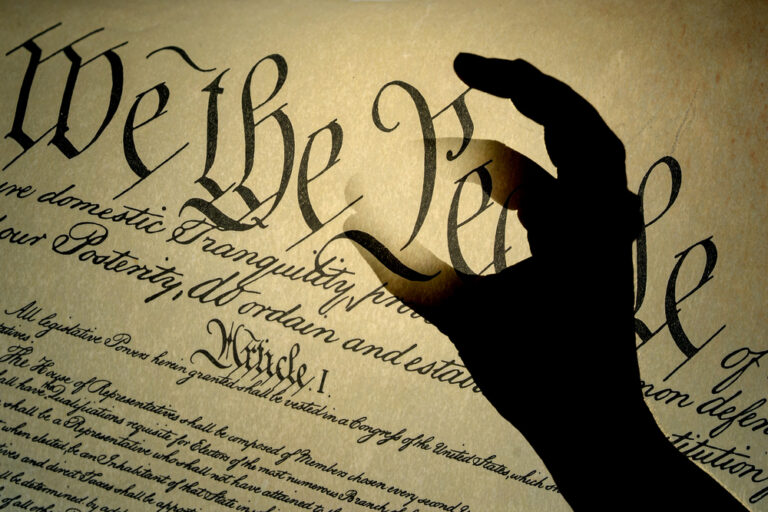Russ Roberts: But there’s a lot of politics – I was going to say in America today, but of course that’s true throughout most of history. any of them democracy. This is certainly true here in Israel. There is concern that the political process is a zero-sum game. If the other side wins, we lose, and we lose in a particularly devastating way.
I will stick to the United States. I think there is a view in the United States that if the left wins, the United States will no longer be the United States; and if the right wins, the left believes that the United States will no longer be the United States. It will be a shame, a failure of what should be its mission.
And I often describe it like this: there is no longer a shared narrative. I don’t know if that’s a useful way to think about it. But when a country is divided and each side considers the other as effectively traitorFirst, it’s very difficult to do anything, which is part of what your book is about; but it also means that there is a cultural failure, it seems to me, and a political failure which go hand in hand as you write in the book. Do you think we’ve reached this point in the United States, and is your book in any way an antidote to this disease?
Yuval Levine: I think, in a sense, we have reached that point. I think getting to this point–I think it’s possible to recover from this kind of condition, because our political tradition gives us many avenues for work on this front.
So I would say that people’s feeling that the stakes are absolute is a function of a misunderstanding of how democracy works.
And it is a misunderstanding which has its origins in the failure of certain democracies. And what is extraordinary about the American Constitution is how conscious it is of this danger.
Thus, democracy is rooted in the sense that majority rule is essential to political legitimacy. I think that’s absolutely true. And the framers of the Constitution in the United States started from this premise.
There East a democracy at the bottom of everything. Ultimately, everyone is accountable to a voting public.
And yet there is another fact about democracy: that majority rule can be very oppressive. And that creates fear among minorities. Because if everything depends on the majority and everything the majority does is considered legitimate, then if you’re not in the majority, you’re in big trouble. And an election is a time when a society decides who is in the majority and who is in the minority. And that means that if everything is on the line in every election, then the stakes are extremely high and so it’s really East a fight to the death.
The U.S. Constitution intentionally creates a set of constraints on majorities, while still giving them power.
Now, it must be said, this is precisely what frustrates us in the Constitution. And many of the critics of the Constitution are essentially in the majority. And they say, “Look, the majority of the public voted for this party and yet they can’t get anything.” do because they have to negotiate with these other institutions and with the other part of the institution.
And that’s true. Everyone who sooner or later wins an election for president or Congress in the United States finds themselves saying, “Look, didn’t I win the election?” Why am I always transaction with these people?
The reason you’re still dealing with these people is that the Constitution is perfectly aware that majorities must be restrained before they are empowered, or at the very least, that to be truly legitimate they must be large and enduring majorities. . and not narrow, diminishing or ephemeral majorities.
Thus, the system creates a bicameral legislature where the two chambers are elected in two different ways. This creates branches of government that constantly get in each other’s way. This creates an executive that is elected in a very particular way and must constantly report to Congress.
All of these things are there to ensure that it’s not just the case that if you’re in the minority, then you’re screwed. This is not how American life should work.
And, in a way, the competing, interactive majorities that the system creates are a way of ensuring that everyone is sometimes in the minority – or at least can imagine themselves being in the minority – and therefore has to worry about the way in which minorities are protected from majority power.
Thus, finding the balance between the power of the majority and the rights of minorities is a challenge that every democracy must face.
I think the US Constitution is actually clearly GOOD to get there, but that’s also why it’s so frustrating to have narrow majorities, which are the only ones we’ve had in 21st century America.


